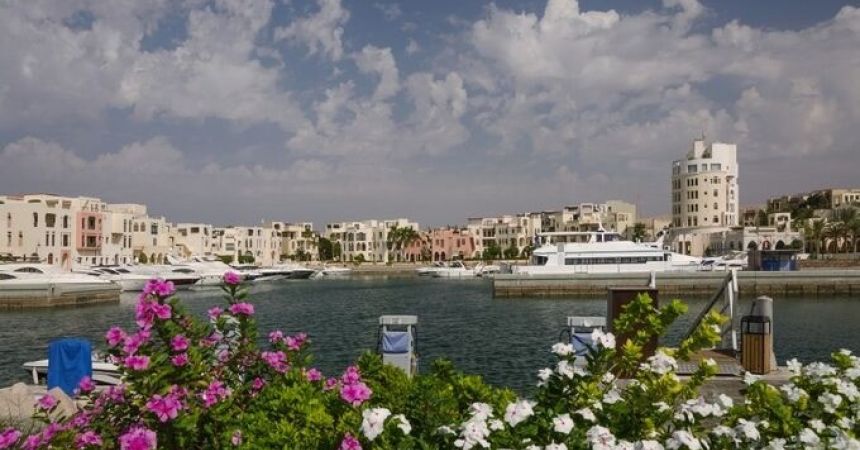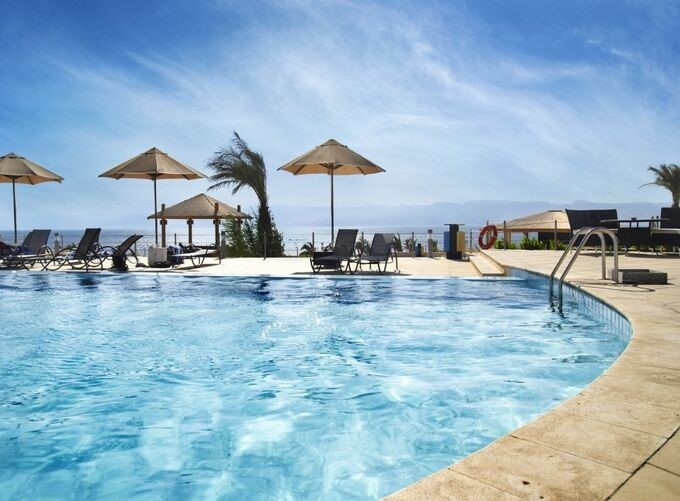
Can You Do Jordan Without a Tour? A Comprehensive Guide
Jordan, a country of mesmerizing landscapes and rich history, is a must-visit destination for many travelers. Known for its ancient ruins, vibrant cities, and stunning natural beauty, Jordan offers a diverse range of experiences. But can you explore without joining a tour Jordan ? The answer is a resounding yes. This comprehensive guide will help you navigate Jordan independently, providing insights on planning, transportation, accommodation, and key attractions.
Planning Your Trip to Jordan
Planning is crucial for any independent trip. Here are the key steps to ensure a smooth journey:
Research and Itinerary:
- Research: Start by researching the places you want to visit. Jordan’s highlights include Petra, Wadi Rum, the Dead Sea, Amman, and the Red Sea at Aqaba.
- Itinerary: Create a flexible itinerary. Allow time for unexpected discoveries and rest days. A typical itinerary might include:
- Day 1-2: Amman
- Day 3: Jerash and Ajloun
- Day 4: Dead Sea
- Day 5-6: Petra
- Day 7: Wadi Rum
- Day 8: Aqaba
Visa and Entry Requirements:
- Visa: Check the visa requirements for your nationality. Many travelers can obtain a visa on arrival, while others may need to apply in advance.
- Jordan Pass: Consider purchasing the Jordan Pass, which includes visa fees and entry to over 40 sites, including Petra and Wadi Rum. It can save both money and time.
Transportation in Jordan
Getting around Jordan independently is manageable with various transportation options:
Car Rental:
- Flexibility: Renting a car gives you the freedom to explore at your own pace. Major cities like Amman have several international and local car rental agencies.
- Requirements: You’ll need a valid driver’s license and an international driving permit. Be aware of local driving customs and road conditions.
- Cost: Car rental prices are reasonable, but fuel costs can add up. Ensure you have comprehensive insurance coverage.
Public Transportation:
- Buses: Jordan has a network of public buses connecting major cities and towns. Companies like JETT offer reliable and comfortable services.
- Minibuses: Minibuses or “service taxis” are a common way to travel between towns. They are inexpensive but can be crowded and less comfortable.
- Taxis: Taxis are readily available in cities. Use metered taxis or agree on a fare beforehand. Ride-sharing apps like Uber and Careem are also available in Amman.
Private Transfers:
- Convenience: For comfort and convenience, consider hiring a private driver or using transfer services. This can be cost-effective for groups.
- Booking: Book in advance through reputable companies or your accommodation.
Accommodation Options in Jordan
Jordan offers a range of accommodation options to suit all budgets:
Hotels and Resorts:
Luxury: Cities like Amman and Aqaba luxury hotels and resorts offering top-notch amenities.
Mid-Range: There are many mid-range hotels providing good value for money. Look for ones with good reviews and central locations.
Budget: Budget hotels and hostels are available in major tourist areas. They offer basic amenities and are perfect for backpackers.
Guesthouses and Boutique Hotels:
Authenticity: For a more authentic experience, consider staying in a guesthouse or boutique hotel. These often reflect local culture and hospitality.
Locations: Popular areas for such accommodations include Petra, Wadi Rum, and Madaba.
Camping:
Wadi Rum: Experience the desert by staying in a Bedouin camp in Wadi Rum. Options range from basic tents to luxurious “glamping” sites.
Dead Sea: Some Dead Sea resorts offer camping facilities, allowing you to enjoy the unique experience of sleeping by the salt lake.
Key Attractions and How to Explore Them Independently
Jordan is home to many iconic attractions that you can explore without a tour:
Amman:
Citadel and Roman Theatre: Explore Amman’s historical sites, including the Citadel and Roman Theatre. Both are centrally located and easily accessible.
Rainbow Street: Stroll down Rainbow Street for a taste of modern Jordanian culture. It’s lined with cafes, restaurants, and shops.
Museums: Visit the Jordan Museum and the Royal Automobile Museum for insights into Jordan’s history and heritage.
Jerash:
Roman Ruins: Jerash is one of the best-preserved Roman cities outside of Italy. It’s easily accessible from Amman by bus or taxi.
Self-Guided Tour: Download a map or guidebook to navigate the extensive ruins, including the Oval Plaza, Hadrian’s Arch, and the Hippodrome.
Dead Sea:
Floating Experience: The Dead Sea is famous for its buoyant, mineral-rich waters. Public beaches and private resorts offer access.
Mud Baths: Indulge in a therapeutic mud bath. Many resorts provide facilities for applying the Dead Sea’s renowned mud.

Petra:
Entry: Arrive early to avoid crowds. The Jordan Pass includes entry to Petra.
Self-Guided Exploration: Follow the main trail through the Siq to the Treasury. Continue to the Monastery and High Place of Sacrifice if you have the energy.
Guides: Local guides are available for hire at the entrance. They can provide deeper insights into Petra’s history and significance.
Wadi Rum:
Desert Tours: Arrange a jeep tour or camel trek through your camp. Tours can include visits to Lawrence’s Spring, the Red Sand Dunes, and rock formations like the Seven Pillars of Wisdom.
Stargazing: Spend the night in a Bedouin camp to enjoy stargazing in the clear desert skies.
Aqaba:
Red Sea: Aqaba is a gateway to the Red Sea’s stunning coral reefs. Enjoy snorkeling, diving, or simply relaxing on the beach.
Marine Park: Visit the Aqaba Marine Park for a variety of water activities and marine life viewing.
Eating and Drinking in Jordan
Jordanian cuisine is a highlight of any visit. Here’s how to enjoy it independently:
Street Food:
Falafel and Shawarma: Try these popular street foods from local vendors. They are delicious, inexpensive, and widely available.
Mansaf: Jordan’s national dish, Mansaf, is a must-try. Look for restaurants specializing in traditional Jordanian cuisine.
Coffee and Tea:
Cafes: Enjoy Jordanian coffee or mint tea at local cafes. It’s a cultural experience as much as a beverage break.
Hospitality: Jordanians are known for their hospitality. Don’t be surprised if you’re offered tea when visiting shops or attractions.
Safety Tips for Independent Travelers
Traveling independently in Jordan is generally safe, but it’s always good to be prepared:
Health and Wellbeing:
Water: Drink bottled water and avoid tap water. Carry a reusable bottle to stay hydrated.
Food Safety: Eat at reputable places. Street food is generally safe, but ensure it’s freshly prepared.
Personal Safety:
Respect Local Customs: Dress modestly and respect local traditions, especially in rural areas and religious sites.
Secure Valuables: Keep your belongings secure, especially in crowded places. Use hotel safes for valuables.
Emergency Contacts:
Embassy: Note the contact information of your country’s embassy or consulate in Jordan.
Local Numbers: Familiarize yourself with local emergency numbers, such as 911 for police, ambulance, and fire services.
Cultural Etiquette and Respect
Understanding and respecting local customs will enhance your experience in Jordan:
Dress Code:
Modesty: Both men and women should dress modestly, covering shoulders and knees. This is particularly important in rural areas and religious sites.
Swimwear: Swimwear is acceptable at beaches and pools, but cover up when leaving these areas.
Behavior:
Greetings: A polite greeting is “Salam” (hello). Jordanians are warm and welcoming, so reciprocate their hospitality.
Public Displays of Affection: Avoid public displays of affection. Holding hands is generally acceptable, but anything more can be frowned upon.
Photography:
Permission: Always ask for permission before taking photos of people, especially women.
Religious Sites: Be respectful when photographing religious sites. Follow any posted guidelines or ask a local if you’re unsure.
Environmental Awareness
Jordan’s natural beauty is one of its greatest assets. Help preserve it by being a responsible traveler:
Waste Management:
Reduce Waste: Minimize plastic use by carrying a reusable water bottle and bags.
Recycle: Dispose of waste properly and recycle when possible.
Nature Conservation:
Protected Areas: Follow the rules in protected areas and national parks. Stick to designated paths and avoid disturbing wildlife.
Water Conservation: Jordan is a water-scarce country. Conserve water by taking shorter showers and reusing towels.
Travel Insurance
Travel insurance is essential for any trip, especially when traveling independently:
Coverage:
Medical: Ensure your policy covers medical emergencies and evacuation.
Trip Cancellations: Look for coverage for trip cancellations or interruptions.
Activities: If you plan on adventure activities like diving or trekking, ensure your policy includes coverage for these.
Documentation:
Policy Details: Keep a copy of your policy details and emergency contact numbers with you.
Claims: Familiarize yourself with the claims process and keep all receipts and documentation in case you need to make a claim.
Explore Jordan: Dead Sea, Wadi Rum, and Culture
Jordan is an incredibly rewarding destination to explore independently. With its rich history, stunning landscapes, and warm hospitality, it offers an unforgettable travel experience. By planning ahead, respecting local customs, and staying informed, you can navigate Jordan with ease and confidence. Whether you’re wandering through ancient Petra, floating in the Dead Sea, or camping under the stars in Wadi Rum, Jordan promises an adventure like no other.



